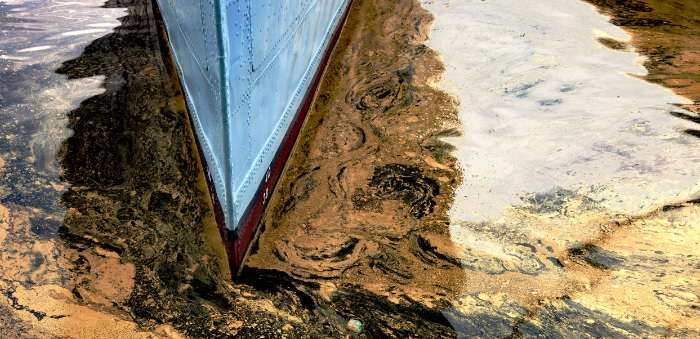Civil and criminal penalties for MARPOL non-compliance are seeing a continuous trend worldwide, especially in the US, even in the midst of the Covid-19 pandemic. In the US, these violations can lead to multimillion-dollar financial penalties on shipowners and third-party vessel managers, while crewmembers can face prison if found guilty.
In this respect, Sam Kendall-Marsden, Director of Claims and Rebecca Hamra, President/Regional Claims Director at the Standard P&I Club provided the liability basis and operational best practice for MARPOL compliance.
As explained, illegal practices that result in MARPOL investigations and prosecutions often involve a ‘magic pipe’ (or flexible hose) bypass of the oily water separator or improper discharge of sludge. Some have involved garbage violations under Annex V of MARPOL.
Almost all cases have included prosecutions for false statements and records, such as misleading entries in the ship’s Oil Record Book and Garbage Record Book. This allows US authorities to prosecute shipowners in the US even if the alleged discharge took place outside of US waters.
The false statements by crew members to USCG inspection teams and prosecutors, destruction or concealment of bypassing equipment, and incriminating records are a feature of many prosecutions and add considerably to the level of fines incurred.
A shipowner can be found guilty of MARPOL violations even if it was unaware of the crew’s actions, if those actions benefitted the company (generally interpreted to mean saving money) and were related to the crew’s responsibilities. It is then for the shipowner to demonstrate that it had in place adequate environmental policies and procedures to prevent this.
There is also an expectation that authorities will begin to target Annex VI violations which covers air emissions in light of IMO 2020.
Operational best practice
Previous publications by the Standard P&I Club suggest the main issues to be addressed are:
- environmental compliance policy implementing ‘zero pollution’ culture
- a clear environmental statement that places proper waste management practices above cost savings and operational expediency
- a no-blame culture, with open reporting of all illegal practices
- shore-side management supervision, with a senior person in the company responsible for environmental compliance reporting to the chief executive and/or the board
- procedures and guidance on equipment control, planned inspection and maintenance regimes
- establishing a robust monitoring regime and recognising the critical role of ship superintendents in checking compliance with environmental procedures and, in particular, detailed analysis of discharge records through oil record books and the ship’s documentation
- effective on-board management of oil waste systems by the chief engineer and master
- installation of the most up-to-date equipment with an effective maintenance programme, prompt procurement of spares, adequate holding tank capacity and shoreside discharge facilities, if required
- periodic testing and calibration of equipment and tamper-proof measures to make bypassing difficult and detectable
- accurate and honest documentation of oil waste management practices, with prompt reporting of any problems to shoreside management for possible escalation to flag or port authorities
- formal training on MARPOL requirements, both on board and ashore – this should be provided on a regular basis and be supported by safety publications
- briefing crew on the implications related to falsification of records and MARPOL violations
- audits and inspections for MARPOL compliance conducted by superintendents and external inspectors, with proper testing of equipment and interviews with engineering crew – results should be clearly documented for review by senior management, with recommendations for improvements.
Rigorous training and supervision, regular auditing and effective senior management oversight are key to ensuring MARPOL compliance. The most effective way to mitigate risk in this area is maintaining a company-wide culture of compliance among, and co-operation and trust between, both ship and shoreside staff that is actively promoted by senior management. MARPOL best practice must be treated as the highest priority, rather than as simply another operational process.







































![]](https://safety4sea.com/wp-content/uploads/2024/06/shutterstock_2318996555-350x250.jpg)

























